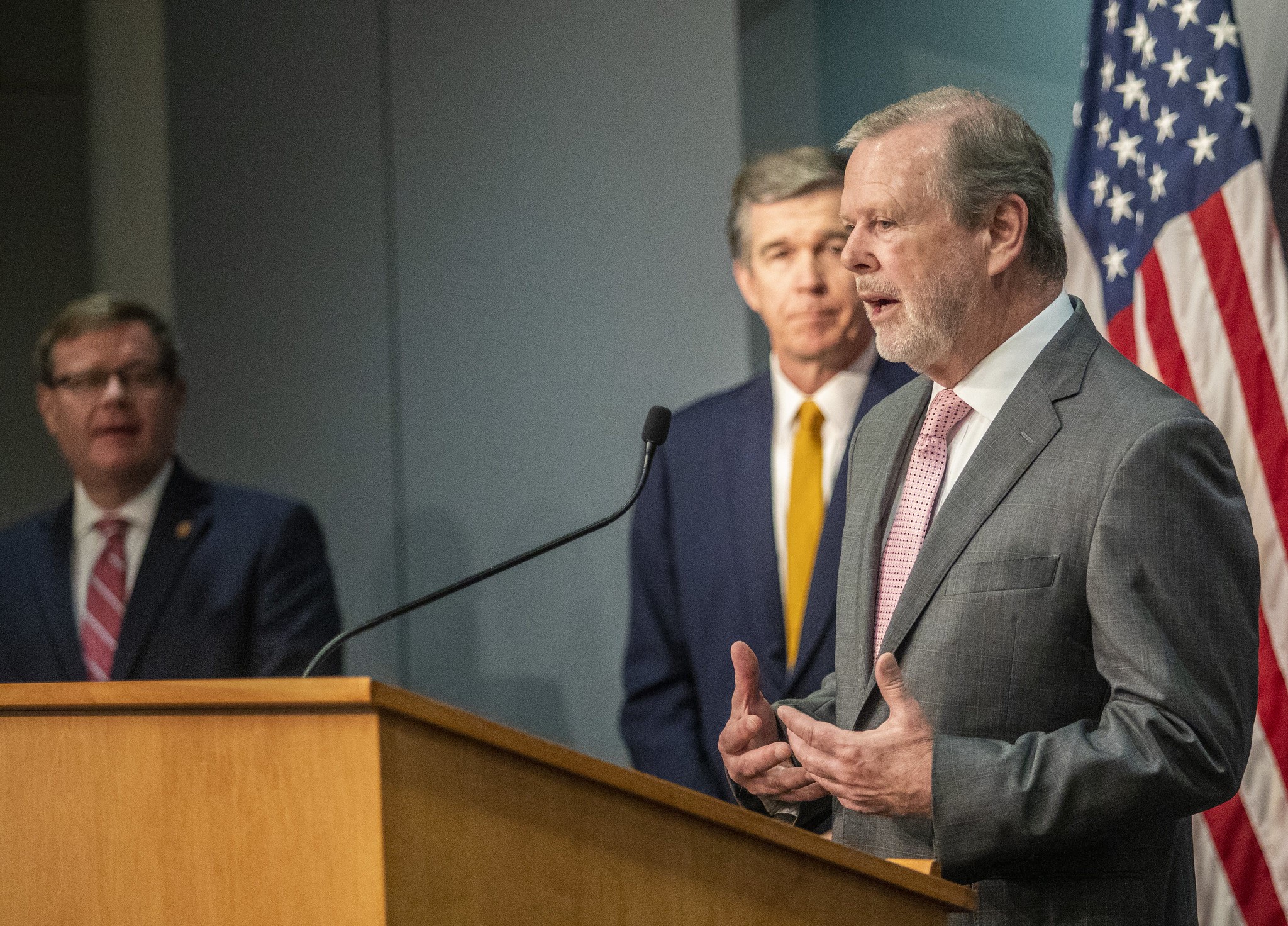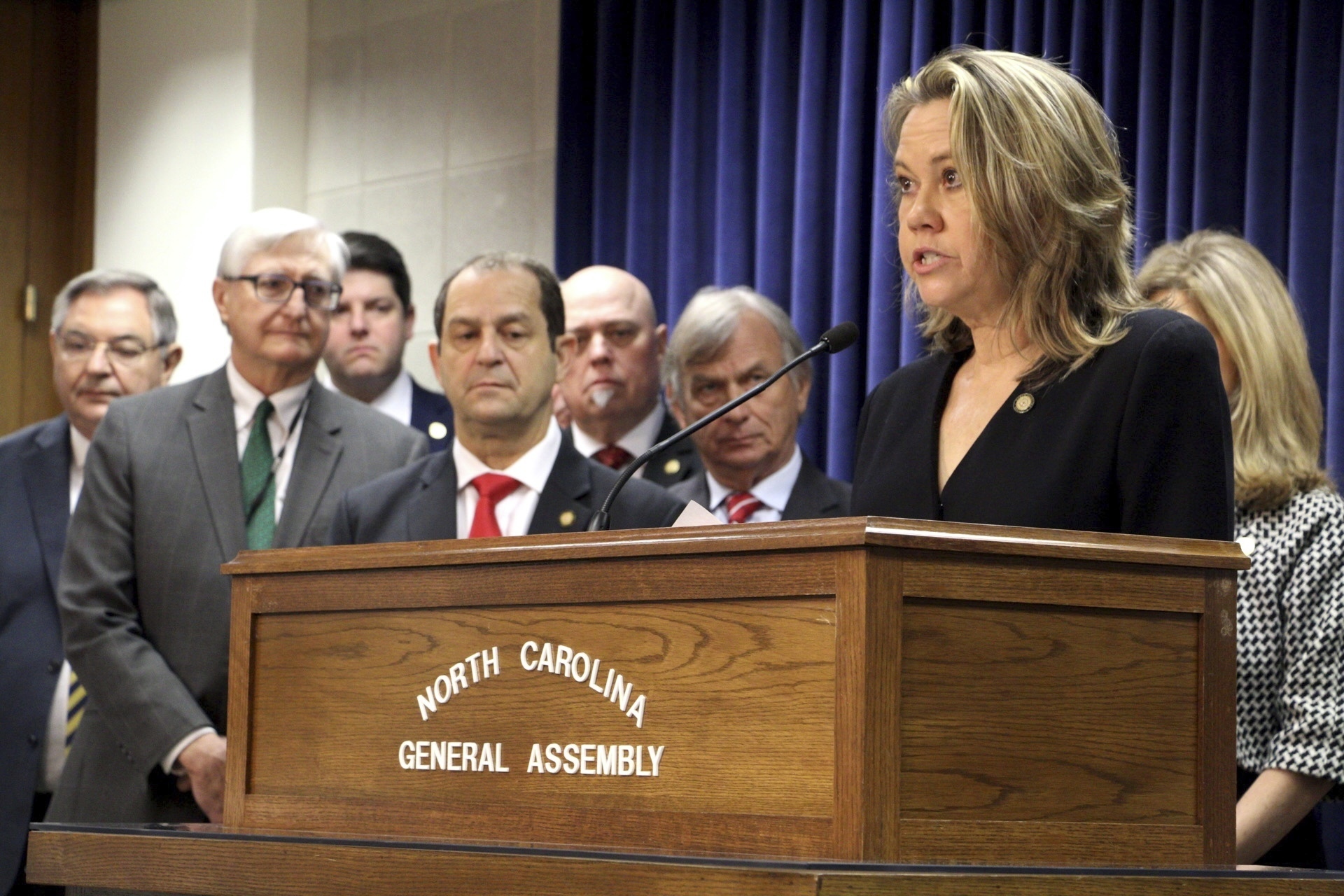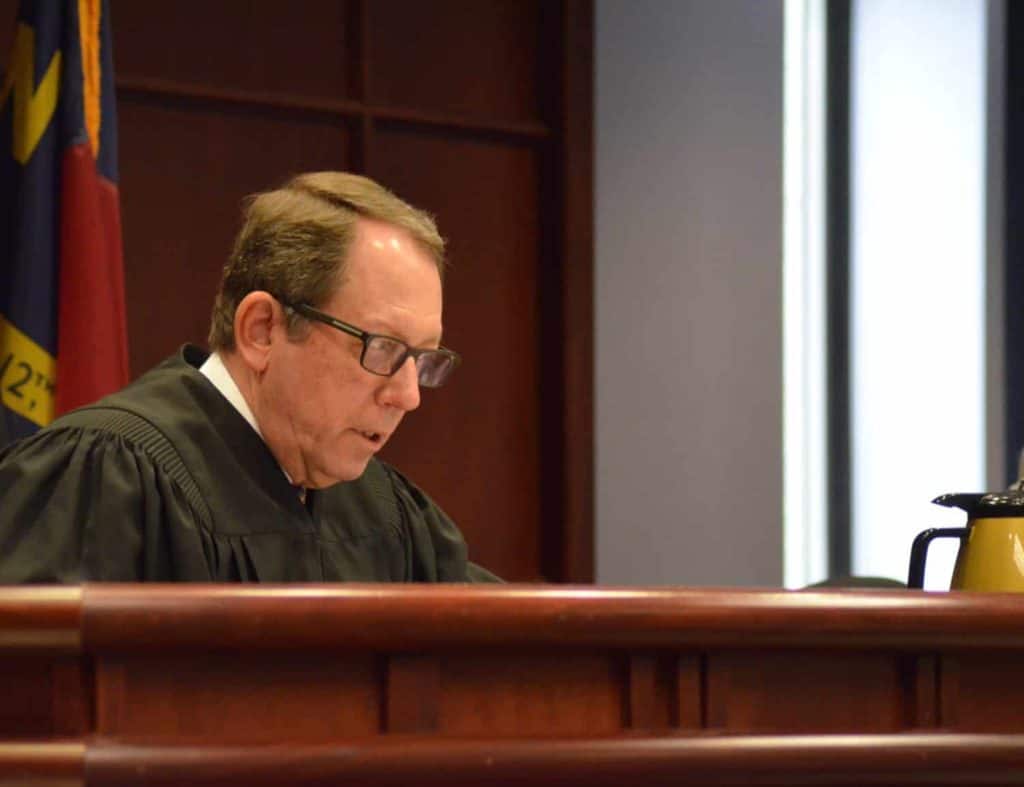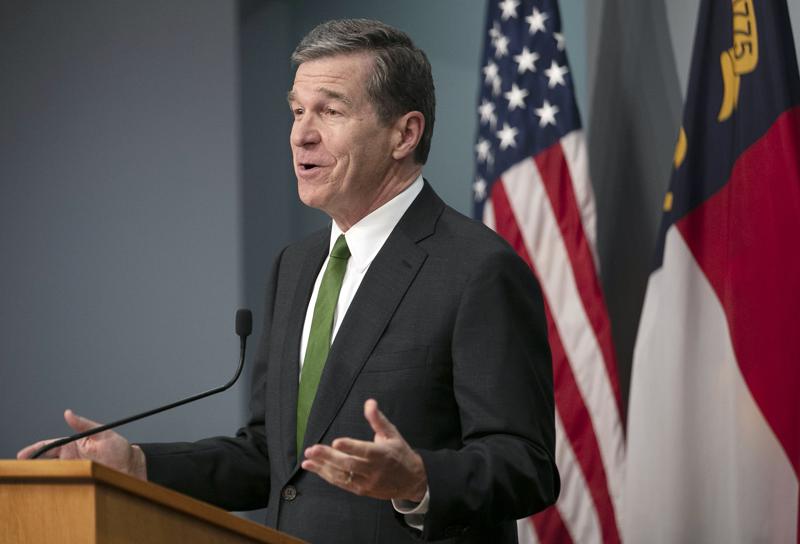Written by BRYAN ANDERSON
North Carolina Senate Republicans on Thursday passed a bill to limit how teachers can discuss certain racial concepts inside the classroom.
The proposal seeks to bar educators from compelling students to personally adopt any ideas from a list of 13 beliefs, including the views that one particular race or sex is inherently superior and that students should feel guilty because of their race or sex.
The measure that passed along party lines by a 25-17 vote is now one step away from clearing the General Assembly and would make its way to the governor if the GOP-controlled House signs off on the latest version.
While Republicans say the bill is designed to, at a minimum, shed light on how teachers operate and call out questionable classroom activities, it does not appear to prevent any of the alleged cases of “indoctrination” that were included in an 831-page task force report GOP Lt. Gov. Mark Robinson released earlier this week.
“The purpose of this bill is to put in place guardrails against the most extreme forms of indoctrination,” Republican Senate leader Phil Berger said during a floor debate.
Democratic Gov. Roy Cooper is likely to veto the bill if it reaches his desk, as he has previously criticized the measure. It could also get stalled in budget negotiations between Berger, Cooper and House Speaker Tim Moore.
Democrats argue Republicans crafted the bill to placate unfounded concerns among staunch conservatives ahead of the 2022 and 2024 elections. They also say the bill would stymie conversations by dissuading teachers from discussing America’s history of racism and lingering effects of slavery.
“Indoctrination is fake news,” said Sen. Gladys Robinson, a Guilford County Democrat. “As a matter of fact, it’s more than that. It’s a bold-faced lie. There is no indoctrination. What we need to do is step in our lane and let them (educators) go into theirs.”
The latest action in North Carolina follows a national trend of Republican-controlled legislatures looking to combat certain ideas they associate with “critical race theory,” a complex framework legal scholars developed in the 1970s and 1980s that centers on the idea that racism is systemic in the nation’s institutions and serves to maintain the dominance of whites in society.
But Republicans have used “critical race theory” and “indoctrination” as catchall phrases to describe racial concepts they find objectionable, such as white privilege, systemic inequality and inherent bias. The movement against the theory gained traction last year when former President Donald Trump signed an executive order barring federal contractors from conducting racial sensitivity trainings after a conservative activist appeared on Fox News urging the former president to do so.
As of Thursday, 27 states have considered legislation or other steps to limit how racism and sexism can be taught, according to an Education Week analysis, with several states adopting language from Trump’s now-defunct executive order.
Berger associates indoctrination with the promotion of any of 13 views the bill outlines, while other Republicans like the state’s lieutenant governor have a more expansive view of the term. Regardless, both point to examples of educators accused of giving preferential treatment to pupils who agree with their racial views and districts hosting questionable trainings and workshops for staff as evidence of systemic problems within the state’s public education system.
“It can’t possibly be true that critical race theory isn’t in our schools and that this bill doesn’t go far enough in addressing critical race theory in our schools,” Berger said. “Which is it? Which argument do the bill opponents want to adopt?”
Sen. Mike Woodard, a Durham County Democrat, believes decisions about how teachers should discuss race ought to be left to state and local education officials in consultation with parents.
“Families and educators don’t want politicians in Raleigh deciding how history will be taught in their schools,” he said.
Photo via AP Photo/Bryan Anderson.
Related Stories
‹

Cooper, Legislative Leaders Announce Deal on K-12 SchoolsWritten by GARY D. ROBERTSON Democratic Gov. Roy Cooper and Republican legislative leaders announced compromise legislation Wednesday that will mean more K-12 students in North Carolina will return to daily in-person instruction, some almost immediately. The agreement, announced in a rare bipartisan news conference by some the state’s most powerful leaders, comes nearly two weeks after […]

North Carolina GOP Again Seeking To Limit Racial TeachingsWritten by HANNAH SCHOENBAUM A previously vetoed proposal advancing in the North Carolina House would restrict how teachers can discuss certain racial topics in the classroom amid a national GOP crusade against ideas they associate with “ critical race theory.” The bill, which passed Tuesday in the House Education Committee, would ban public schools from compelling students […]

Health Experts, Orange County Officials Share Concern for LGBTQ Wellbeing in Wake of NC BillsThe passage of two bills by the North Carolina General Assembly has drawn condemnation from some elected bodies in Orange County and local pediatric health experts alike for their anti-LGBTQ+ elements. The bills’ sponsors say the elimination of gender-affirming medical care for those under 18, as well as the requirement of educators to alert parents […]

North Carolina Senate Again Seeking LGBTQ Limits in SchoolsWritten by HANNAH SCHOENBAUM A bill advancing in North Carolina’s Senate would prohibit instruction about sexuality and gender identity in K-4 public school classes, defying the recommendations of parents, educators and LGBTQ youths who testified against it. Sponsors of the bill, approved Wednesday by the Senate education committee, say they want to grant parents greater authority […]

NC Judge: No Explanation for Replacement in ‘Leandro’ CaseWritten by GARY D. ROBERTSON A retired judge who has managed longstanding litigation on K-12 education spending in North Carolina for years said he’s received no direct explanation why he’s not handling the next portion of the case. Superior Court Judge David Lee has been overseeing the lawsuit called “Leandro” since late 2016. But this […]

‘Leandro’ Fast-tracked to Justices; New Judge Directs ReviewWritten by GARY D. ROBERTSON North Carolina’s justices have agreed to accelerate the process that will likely lead to another landmark ruling over inequities in the public schools and the state’s role in removing them — such as whether courts can order that taxpayer money be spent. The state Supreme Court granted a request backed […]
![]()
Judge: N Carolina Must Spend $1.75B to Narrow Education GapWritten by GARY D. ROBERTSON A North Carolina trial judge on Wednesday ordered the state to pay out $1.75 billion to help narrow the state’s public education inequities, angering Republicans who said the directive usurps lawmakers’ constitutional authority over state coffers. Superior Court Judge David Lee, who is charged with overseeing corrective responses to school […]

Cooper: I’ll Seek Public School Spending Surge in NC BudgetWritten by GARY D. ROBERTSON Soon entering the critical phase of North Carolina’s budget talks, Democratic Gov. Roy Cooper said Tuesday he would aim to get Republican lawmakers to fund public education improvements a judge says the state must start implementing. Addressing a panel he created to help comply with legal rulings in a decades-old […]

Judge Sets Deadline for N. Carolina To Boost School FundingA North Carolina judge has set a mid-October deadline for state lawmakers to follow a court-ordered plan to provide full funding for improving public education or he will take action himself. State Superior Court Judge David Lee said he was “very disheartened” that the General Assembly is funding a small part of a plan calling […]

North Carolina Senate OK’s Bill Limiting Racial TeachingsWritten by BRYAN ANDERSON North Carolina Senate Republicans on Thursday passed a bill to limit how teachers can discuss certain racial concepts inside the classroom. The proposal seeks to bar educators from compelling students to personally adopt any ideas from a list of 13 beliefs, including the views that one particular race or sex is inherently […]
›











